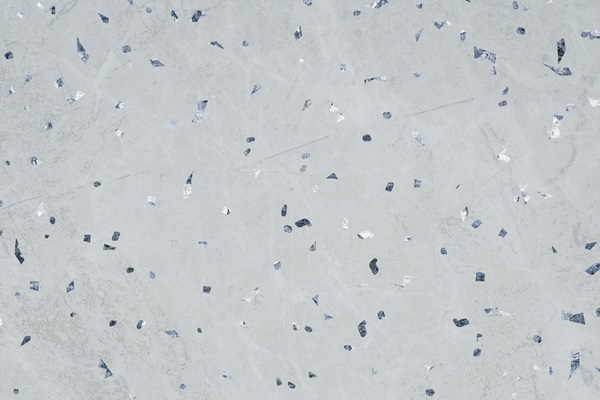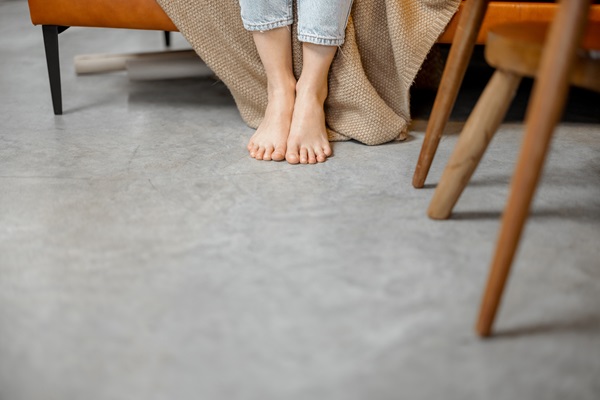Discover the cost comparison between epoxy flooring and tiling in our latest blog post. Find out which option is more budget-friendly for your next home renovation project.
Lifespan
Epoxy flooring is known for its exceptional durability and longevity, making it a popular choice for commercial and industrial spaces. When properly installed and maintained, epoxy flooring can last up to 20 years or more before needing any major repairs or replacements. This extended lifespan can result in cost savings over time compared to traditional tiling, which may require more frequent maintenance and replacement due to wear and tear.
On the other hand, tile flooring also offers a decent lifespan, typically lasting around 10-20 years with proper care. However, tiles are more prone to cracking and chipping, especially in high-traffic areas or if heavy objects are dropped on them. In such cases, repairs or replacements can be costly and time-consuming. Ultimately, the lifespan of epoxy flooring surpasses that of tiling, making it a cost-effective long-term investment for many property owners.
Longevity and Replacement Costs
When considering the longevity and replacement costs associated with epoxy flooring compared to tiling, it is crucial to assess the durability and maintenance needs of both options. Epoxy flooring is known for its exceptional longevity, lasting up to 20 years with proper care and maintenance. In contrast, tiling may require more frequent repairs or replacements over time, especially in high-traffic areas or environments prone to moisture and wear.
In terms of replacement costs, epoxy flooring generally proves to be a more cost-effective long-term investment compared to tiling. While initial installation costs for epoxy flooring may be slightly higher than tiling, the durability and longevity of epoxy can result in significant savings over time. On the other hand, tiling may require more frequent repairs or replacements, leading to additional expenses in the long run.

Functionality
Epoxy flooring is a popular choice for many homeowners and businesses due to its high level of functionality. It is known for its durability and resistance to stains, chemicals, and moisture, making it ideal for high-traffic areas such as garages, warehouses, and industrial settings. The seamless surface of epoxy flooring also makes it easy to clean and maintain, providing a hygienic environment for various applications.
In contrast, tile flooring, while aesthetically pleasing, may not offer the same level of functionality as epoxy. Tiles can crack or chip easily under heavy impact, leading to potential maintenance issues and replacement costs over time. Additionally, grout lines in tile flooring can trap dirt and bacteria, posing hygiene concerns in settings where cleanliness is crucial.
Practicality for Different Applications
Epoxy flooring is a versatile option that can be practical for a variety of applications. Its seamless and smooth surface makes it ideal for environments where hygiene is crucial, such as hospitals, laboratories, and food processing plants. The ease of cleaning and resistance to stains and chemicals also make epoxy flooring a convenient choice for commercial kitchens and manufacturing facilities.
Moreover, epoxy flooring is a popular option for residential spaces like garages and basements due to its durability and ability to withstand heavy foot traffic and vehicle weight. Its resistance to moisture and mould growth also makes it a suitable choice for areas prone to spills or high humidity levels. Additionally, the availability of decorative options like flakes and metallic finishes enhances the aesthetic appeal of epoxy flooring, making it a practical choice for both functional and visually pleasing applications.
Health and Safety
When it comes to health and safety considerations, epoxy flooring offers distinct advantages over traditional tiling. Epoxy flooring is seamless, which means there are no grout lines where bacteria and mould can grow. This makes epoxy flooring a more hygienic option for spaces where cleanliness is paramount, such as commercial kitchens and medical facilities.
Moreover, epoxy flooring is resistant to chemicals, making it easy to clean and maintain without the need for harsh cleaning agents. This not only contributes to a healthier indoor environment but also reduces the risk of slips and falls due to its slip-resistant properties. Overall, epoxy flooring can be a practical choice for those looking to prioritise health and safety in their living or working spaces.
Impact on Indoor Air Quality
Opting for epoxy flooring over tiling can have a positive impact on indoor air quality. Epoxy flooring is a seamless surface, which means there are no grout lines where dust, allergens, or other pollutants can accumulate. This leads to easier cleaning and maintenance, ultimately resulting in better air quality within the indoor environment.
In addition, epoxy coatings are known for their low volatile organic compound (VOC) emissions compared to some types of tiling adhesives and grouts. This means that choosing epoxy flooring can contribute to a healthier indoor environment by reducing the potential off-gassing of harmful chemicals. By improving indoor air quality, epoxy flooring can create a more comfortable and safer living or working space for occupants.

FAQS
Is epoxy flooring more cost-effective than tiling?
In general, epoxy flooring tends to be more cost-effective than tiling due to its lower material and installation costs.
How long does epoxy flooring last compared to tiling?
Epoxy flooring has a longer lifespan compared to tiling, with proper maintenance it can last up to 20 years or more, while tiling may require replacement sooner.
Are there any additional costs associated with epoxy flooring in comparison to tiling?
While epoxy flooring may have a higher upfront cost, it typically requires less maintenance and repair over time, potentially making it more cost-effective in the long run than tiling.
Can epoxy flooring be used in all applications where tiling is used?
Epoxy flooring is versatile and can be used in a variety of applications where tiling is used, including residential, commercial, and industrial settings.
Is epoxy flooring safer for indoor environments compared to tiling?
Epoxy flooring is a seamless and non-porous surface, making it easier to clean and maintain than tiling, which can harbour bacteria and allergens. This can contribute to better indoor air quality and overall safety in the space.